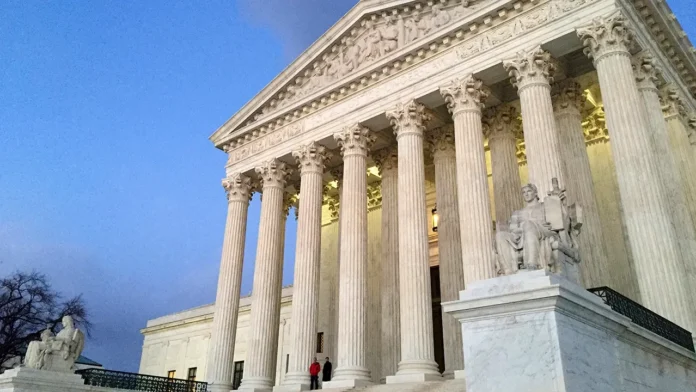Presidential firing power will face a major Supreme Court test as justices agreed to revisit a landmark 1935 decision. The case could expand the president’s authority over independent federal agencies and reshape the balance of power in Washington.
The Court announced last week that it will reconsider Humphrey’s Executor v. United States. That historic case limited a president’s ability to fire members of independent agencies without cause. The new challenge involves the firing of FTC commissioner Rebecca Slaughter by Donald Trump after taking office.
Trump removed Slaughter without citing misconduct, sparking a lawsuit over whether the move violated the FTC Act. That law protects commissioners from removal except for reasons like negligence or malfeasance. The Supreme Court allowed Trump’s termination to remain in place for now while it reviews the case.
Legal experts say the decision could have sweeping effects. If justices overturn Humphrey’s Executor, presidents could freely remove commissioners from agencies such as the FTC or SEC. Supporters argue this would let presidents run the executive branch like a CEO managing a company.
Hans von Spakovsky, a legal scholar, said presidential firing power should not face limits from Congress. He argued that agency leaders enforce laws and should report directly to the president.
Therefore, Rebecca Slaughter has called her firing unlawful and says it undermines the independence of the FTC. Her supporters argue that removing these protections could politicize agencies designed to be impartial.
Joshua Blackman, a law professor, warned that a ruling could extend beyond the FTC. He suggested it might also affect agencies with similar protections, such as the Federal Reserve or labor boards.
This case highlights a broader debate over the separation of powers. Expanding presidential firing power could shift authority away from Congress and increase White House control over regulators.
The Supreme Court will hear oral arguments later this term. The outcome could redefine how presidents manage independent agencies for decades to come. Until then, both political and legal observers are preparing for a landmark decision that could reset the balance of federal power.
For more political updates, visit DC Brief.


